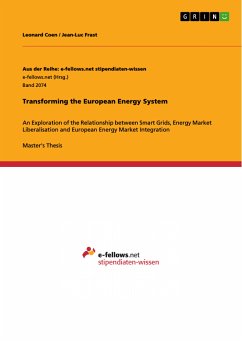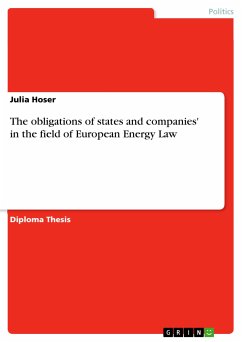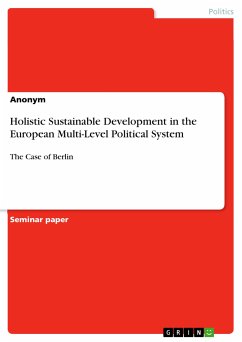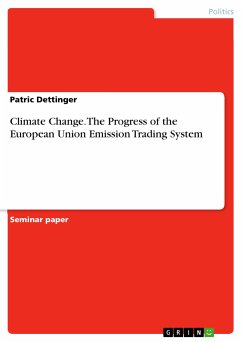Master's Thesis from the year 2012 in the subject Politics - Environmental Policy, grade: 1,0, University of Copenhagen, course: International Law & Economics, language: English, abstract: The European Union aspires to be a frontrunner in the transition towards a low-carbon economy. Its energy policy aims at reconciling climate and environmental objectives, with concerns over security of supply and competitive markets. The restructuring and modernisation of the European energy system is driven by a continuous liberalisation regime in conjunction with the promotion of renewable energy sources and energy efficiency. The implications of this strategy are manifold, whereof the modernisation and upgrade of the electricity grid is increasingly recognized to be the quintessential prerequisite to meet tomorrow's energy challenges. The emergence of the Smart Grid has enthused industry and policy makers alike, as it has the potential to be the enabler for a future low-carbon electricity system by facilitating demand-side efficiency, increasing the shares of renewables and distributed energy generation, and enabling electrification of transport. The European Commission views the Smart Grid as the backbone of Europe's future energy infrastructure advancing the development of green energy, while making the system more stable through information and communication technologies. The deployment of Smart Grid implies a technological transformation that will have a deep impact on the whole electricity value chain. The thesis explores the effects of this transition process with regard to energy market liberalisation, Smart Grid deployment and energy market integration. We scrutinize the relationship of these three variables, by considering Smart Grids as a function of liberalisation, liberalisation as a function of Smart Grid deployment and last but not least market integration as a function of liberalisation and Smart Grid deployment. [...]
Dieser Download kann aus rechtlichen Gründen nur mit Rechnungsadresse in A, B, BG, CY, CZ, D, DK, EW, E, FIN, F, GR, HR, H, IRL, I, LT, L, LR, M, NL, PL, P, R, S, SLO, SK ausgeliefert werden.









